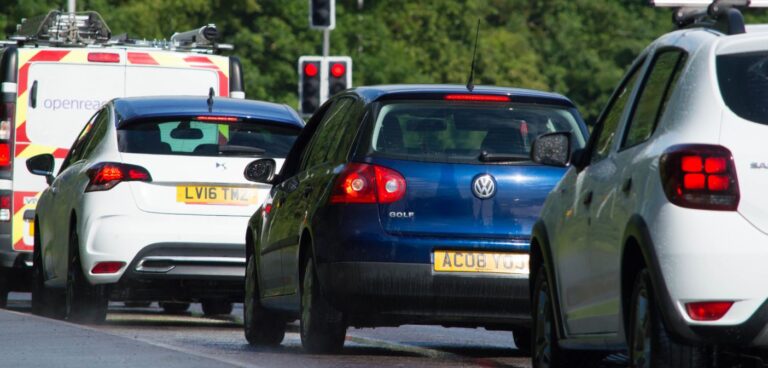More than 650,000 households in London could give up their private vehicles and switch to car clubs to meet the capital’s climate goals, according to new analysis.
Research by shared transport charity, Collaborative Mobility UK (CoMoUK) has found this would reduce carbon emissions by 82,000 tonnes a year, helping mayor Sadiq Khan meet the targets set out in his Transport Strategy.
The charity’s new report, Driving London Forward, highlights that the city is home to 2.7 million private cars, making it the single most dominant transport mode. It warned that this does not fit the mayor’s key aims of ensuring 80% of journeys are made by sustainable modes by 2041, and for London to be a Net Zero city by 2030.
Furthermore, the charity found there are currently 3,482 car club cars shared in London by 623,910 members, up from 300,000 in March 2019.
Research of the travel habits of car-owning households in London and the identification of car-owning households where their trip frequencies and characteristics show that they could move from private ownership to car club use showed 650,000 could make the switch.
An additional 21,000 car club vehicles would be needed to meet the demand, but there would be around 300,000 fewer privately owned cars on the roads, including 194,000 vehicles not compliant with the Ultra Low Emission Zone (ULEZ).
The findings will be shared with Transport for London (TfL) and the mayor’s office. In a list of recommendations for 2022, the report said TfL should promote car clubs as part of a package of alternatives to the private car.
It also wants TfL to co-establish with London councils and boroughs the basis of an EV charging infrastructure that suits the needs of car clubs and gives them preferential access.
The charity said boroughs should actively promote car clubs as an alternative to car ownership, freeze parking permit charges for car clubs and shift business trips from private cars to car club vehicles. CoMoUK added London councils should co-ordinate with car sharing operators on centralised data collection for the city, replacing the existing data sharing between car clubs and boroughs.
Richard Dilks, chief executive of CoMoUK, said: “We have produced this report to define the future potential of car club services in London, and the huge impacts these would have are there for all to see. London has strong ambitions to cut its transport emissions but faces equally strong challenges in doing so.
“As London emerges from the Covid-19 pandemic into a changed world, car clubs and other shared transport options should be a permanent and integrated part of the options the capital takes forward as it continues to make itself a more pleasant, productive and less polluted and congested global city.”





